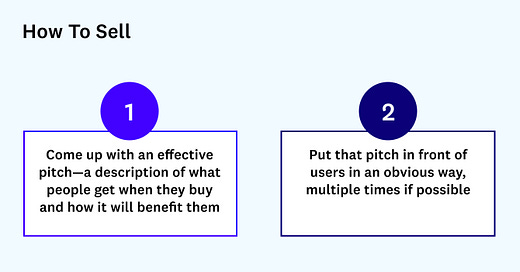Member Mailing #284: PARQOR is Moving to The Information
Members' Essay: Creators lack the ability to sell effectively on platforms. More new formats on platforms will not create more opportunity for them or for Hollywood talent.
Dear Reader:
Starting this Friday, PARQOR will be moving off of Substack and to The Information’s new Newsletter Network. For nearly 10 years The Information has pioneered high value subscription content, and recently they extended an invite to PARQOR and a few other select publications to move their publications over to their platform.
Moving to The Information’s platform will not change anything about your existing subscription - you will still get the same content you receive today.
PARQOR is staying 100% independent, we are just transitioning over to a much more powerful technology and platform to serve our readers and subscribers. Being on The Information’s platform has a few key benefits that you should see over time — it should allow us to offer you more personalized, in-depth content in certain areas, and should help us grow our community and the insights that I can offer.
Thank you for being with us from the beginning and I very much look forward to this next chapter.
Best,
Andrew
Key Takeaways
“This decade is the disruption of retail into platforms where people consume content” — YouTube Chief Business Officer Robert Kyncl
Creator Economy platforms could increase revenue “if they had better ways to charge fans for content directly” — Every co-founder Nathan Baschez
But, Baschez also argued: “platforms need to build out the features for creators to effectively make the sell”.
The implication: new bets on new formats from Pinterest, Spotify and YouTube may not necessarily lead to more revenue for creators.
If Hollywood talent had a disadvantage against creators before last week, more new formats on platforms will not lead to better business outcomes.
I was struck by a prediction made by YouTube’s Chief Business Officer Robert Kyncl at The Information’s Creator Economy Summit last Thursday:
“This decade is the disruption of retail into platforms where people consume content”
He is describing “distributed retail” as a marketplace theme for the 2020s, something which can be best summed up as individuals selling products to “trusting audiences”. He predicted it could turn the creator economy into a “juggernaut”.
On that same day Every co-founder Nathan Baschez offered an alternative prediction for the Creator Economy in a blog post on A16Z’s Future in “What’s Next for Creator Platforms? Learning to Sell”:
If there’s one main idea driving excitement in the “creator economy,” it’s this: Creators with large audiences on platforms like Instagram, TikTok, Twitter, and YouTube could generate orders of magnitude increases in revenue if they had better ways to charge fans for content directly, rather than relying on ads or [merchandise] sales.
In one day, two quotes and two different predicted futures emerged for the “creator economy”: Kyncl’s point is creator business models are evolving towards disrupting retail commerce (traditional and e-commerce), and Baschez’s point is that creator business models are evolving towards charging fans for content directly.
They have some overlap but each imagines very different marketplace dynamics: effectively the differences between QVC and every other linear cable channel.
The more interesting prediction lies in something else Baschez wrote: “platforms need to build out the features for creators to effectively make the sell”.
In other words, it does not matter whether business models move more towards retail or content in the 2020s: creators lack the ability to sell effectively on platforms.
Recent bets from Pinterest, Spotify and YouTube on new content formats seem to fly in the opposite direction of solving that problem, as all bet on more formats. But more new formats may not necessarily lead to more sales for creators.



